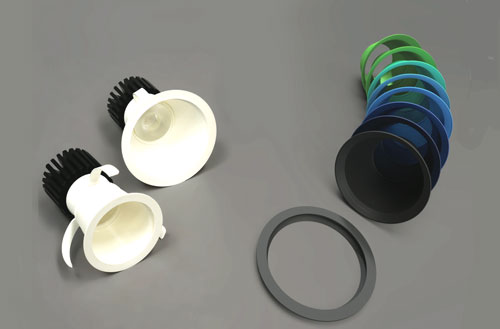Start-up bio-prints lights to order

A UK start-up has began using bio plastics to print luminaires to order.
Leeds-based LumiAdd uses polylactic acid, or PLA, for the bodies of its lights, a material which produces 97.5 per cent less Co2 emissions than aluminium sourced in the Far East and 92.7 per cent less Co2 emissions than aluminium sourced in the EU.
It is also possible to recycle PLA or compost it using industrial composting conditions.
complete rethink of the way luminaires are designed and manufactured’ is the force behind Sustainable Design Freedom from LumiAdd.
Poly Lactic Acid is significantly more sustainable than conventional materials currently used in the lighting industry such as aluminium and petrochemical plastics.
3D printing to orders results in zero waste and enables unconstrained design innovation. It also enables LumiAdd to manufacture and assemble in the UK helping to lower each product’s carbon footprint.
Luminaire components can be manufactured in the same location where final assembly is completed, greatly reducing transport related carbon emissions.
Furthermore, says the firm, it supports a localised workforce and empowers the development of modern technology skill sets.
With the manufacturing process of 3D printing, there is no requirement for hard tooling, eliminating the need for stock holding and subsequently reduces any potential waste through product obsolescence and product evolutions.
It future proofs product maintenance and re-manufacture, as replacement parts can be produced in required volumes with no time constraints.
Any design evolutions can be easily integrated without the need for lengthy and costly tooling modifications.
The luminaires are designed to be re-used, repaired and re-manufactured, with recycling or industrial composting being the last option.
LumiAdd even offers a buy back scheme to support the return its luminaires at the end of their first use.
LumiAdd products achieve the highest TM66 assessment category of excellent circularity.


